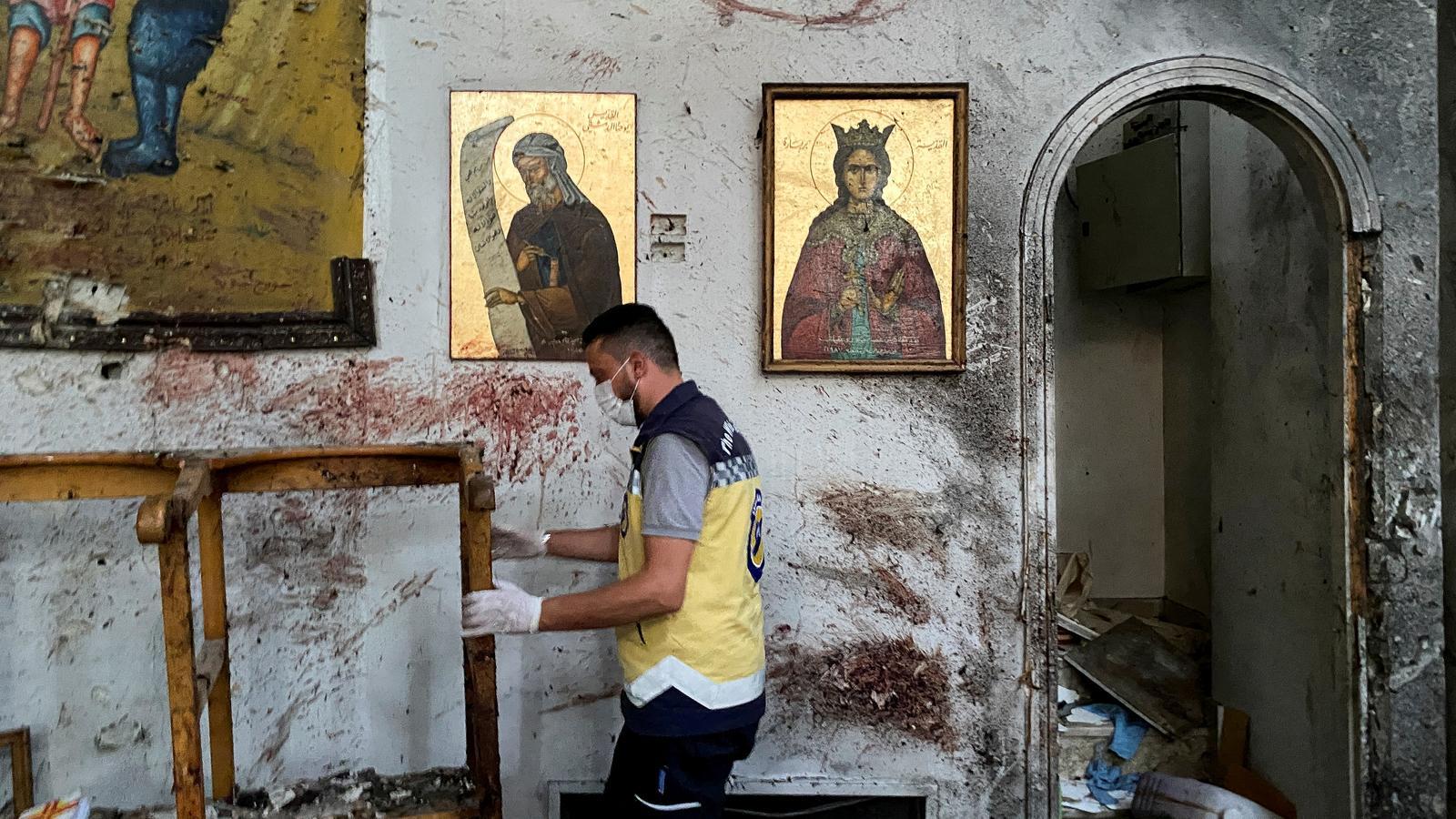The Islamic State is reborn in post-Assad Syria
After being weakened by the fall of the regime, it has reappeared with more sophisticated attacks.


DamascusWhen a suicide attack rocked Syria's Christian community on June 22, most experts immediately pointed the finger at the Islamic State (IS)—also known by its acronym ISIS. A suicide bomber entered St. Elijah Church in the Dweila neighborhood of Damascus's historic center. After firing indiscriminately at worshippers attending mass, he detonated an explosive belt, killing 26 people and wounding more than 50.
Four days later, furniture damaged by the explosion was piled up outside the church door. Inside, the glass was shattered, and damage to the ceiling and walls gave an idea of the violence of the blast. "The church was full, there must have been about 300 worshippers when the terrorist arrived," explained Father Romanos. The day after the attack, the government reported the arrest of an IS cell on the outskirts of Damascus consisting of seven people, including an accomplice of the terrorist who carried out the attack. However, the fact that a little-known group called Saraya Ansar al-Sunna claimed responsibility for the attack has raised questions about responsibility.
Charles Lister, a security expert specializing in Syria, believes it is highly likely that the two groups are linked. "Whether Ansar al-Sunna is integrated into ISIS or not, it is moving in that direction. Its attacks [against minorities] are in line with what ISIS wants to achieve," Lister wrote to X.
After having seen its infrastructure reduced to a minimum as a result of the fall of Bashar al-Assad's regime, it had been weeks since theEI had given signs of recovering with several increasingly sophisticated attacks in different parts of Syria. However, the organization, which a decade ago came to control a large swathe of territory between Syria and Iraq that it called caliphateSyria is still a shadow of what it once was.
According to Lister data, the group carried out an average of 54 attacks per month in 2024, while this year to date, the number has dropped to around 100. However, since January, there has been a progressive increase in attacks. In the last month and a half alone, and not counting the church attack, the jihadist organization has carried out eight attacks involving explosives, one of them a powerful car bomb located at a police station.
"It's true that the data shows increased ISIS activity, but I'm skeptical about their ability to impose control over certain areas of Syrian territory," says Orwa Ajjoub, an expert on Syrian jihadism. To avoid such scenarios, Trump has so far failed to fulfill his promise. promise to withdraw US troops from the northeast of the country, responsible for carrying out anti-terrorist missions, although their number has been reduced by half, to approximately one thousand.
The decline in attacks at the beginning of the year is explained by the intensification of counterterrorism operations by the US-led international coalition once Assad's army withdrew from the central desert, the jihadists' main refuge. Furthermore, Lister maintains that the collapse of the Assad dictatorship.
"Excessive moderation" of the new president
A former leader of the group, known then as Al-Julani and now as Ahmed al-Sharaa, is the country's new president. However, relations with his former militia are not exactly good. In recent months, a dozen attacks have been prevented thanks to the joint work of Syrian security forces and several countries in the region, including the United States.
Precisely, Al Sharaa's rapprochement with some Western countries considered arch-enemies of jihadism has opened up an opportunity for growth for IS. After the Meeting between the Syrian leader and the US presidentDonald Trump, the IS propaganda arm, called Al Sharaa an "apostate" and urged its followers to fight the new political regime.
One group they could successfully target with their recruitment networks is the former radical Islamist fighters allied with HTS, the militia that Al Sharaa created in 2017 after breaking away from Al Qaeda. Within some of these militias, there is discontent over the Syrian president's "excessive restraint." Washington's envoy to Syria, Tom Barrack, even went so far as to express his fear of a possible assassination of the Syrian president.
Among these former combatants are some 4,000 foreign nationals whom Al Sharaa wants to incorporate into the new Syrian army, a move that has drawn much criticism from Syrian civil society. This is yet another example of the complex balancing act the new president must undertake between the demands of his Western allies, Syrian civil society, and the Islamist fighters who helped him rise to power.
"Some foreign veterans may join the Islamic State, but I don't think they'll do so in large numbers, especially now that they've gained power. Besides, they're interested in maintaining a good relationship with the government so it can grant them citizenship and not deport them to their countries of origin," Ajjoub comments.
